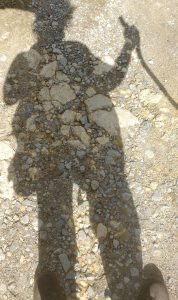Had we but world enough and time,
This coyness, lady, were no crime.
We would sit down, and think which way
To walk, and pass our long love’s day.
Thou by the Indian Ganges’ side
Shouldst rubies find; I by the tide
Of Humber would complain. I would
Love you ten years before the flood,
And you should, if you please, refuse
Till the conversion of the Jews.
My vegetable love should grow
Vaster than empires and more slow;
An hundred years should go to praise
Thine eyes, and on thy forehead gaze;
Two hundred to adore each breast,
But thirty thousand to the rest;
An age at least to every part,
And the last age should show your heart.
For, lady, you deserve this state,
Nor would I love at lower rate.
But at my back I always hear
Time’s wingèd chariot hurrying near;
And yonder all before us lie
Deserts of vast eternity.
Thy beauty shall no more be found;
Nor, in thy marble vault, shall sound
My echoing song; then worms shall try
That long-preserved virginity,
And your quaint honour turn to dust,
And into ashes all my lust;
The grave’s a fine and private place,
But none, I think, do there embrace.
Now therefore, while the youthful hue
Sits on thy skin like morning dew,
And while thy willing soul transpires
At every pore with instant fires,
Now let us sport us while we may,
And now, like amorous birds of prey,
Rather at once our time devour
Than languish in his slow-chapped power.
Let us roll all our strength and all
Our sweetness up into one ball,
And tear our pleasures with rough strife
Through the iron gates of life:
Thus, though we cannot make our sun
Stand still, yet we will make him run.
This poem is so well-known, and rightly loved, that I feel slightly silly commenting on it, so I shall try to restrain myself. But I have to rejoice in the perfection of its form: how the regularity of the 4-iamb lines—an iamb is a ‘di-dum‘, with the stress on the dum—and the use, almost always, of perfect rhyme, combine to mimic the relentlessness of time—throughout, but particularly in the first three lines of stanza two. (In line 4 of that stanza, ‘deserts of’ breaks that rhythm, but for me has always had feeling of “galloping” in it which, I guess, is what Time’s horses would be doing.)
I also have to note the way he makes reference to a very C17th literary conceit, the blazon, which is where the poet lists the beloved’s attributes and praises them in turn, usually extravagantly—the formal trick Shakespeare was sending up in ‘My mistress’ eyes are nothing like the sun’. Here Marvell gives both the literary convention, and the beloved’s beauties, a mere nod, as it were in passing. ‘Yes, darling: nice eyes, great boobs… I’ve got all the moves— but hey, we’re on a clock here’.
Unlike ‘Water’, our last poem, this poem is constructing an argument, which pivots neatly—and inevitably—around the ‘But’ which opens stanza two, and which we’ve anticipated all the way from ‘Had we’, the first words of stanza one. So rhetorically brilliant, the way that all the reasons to go slowly thus somehow end up seeming to strengthen the case for going quickly! Would this deftness, or the agony of being mortal, or the sheer chutzpah win me over, I wonder, or would I have the presence of mind to point out that there are other ways of making time run, too? But just imagine the twinkle in his eye as he says those last lines, the anticipatory relish…
 So: we walked the 25ish miles from Frome to Bath, stopping to swim, eat and pour water at various points along the way.
So: we walked the 25ish miles from Frome to Bath, stopping to swim, eat and pour water at various points along the way.